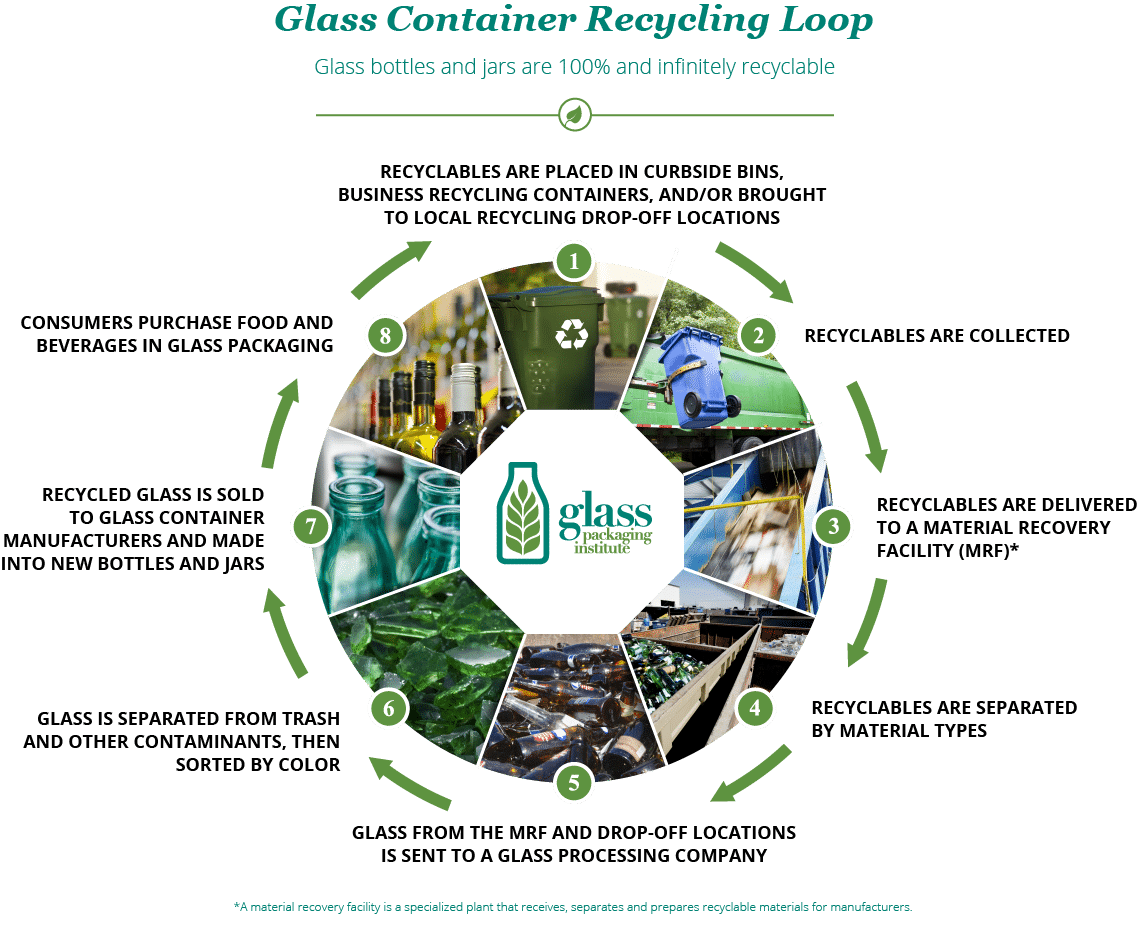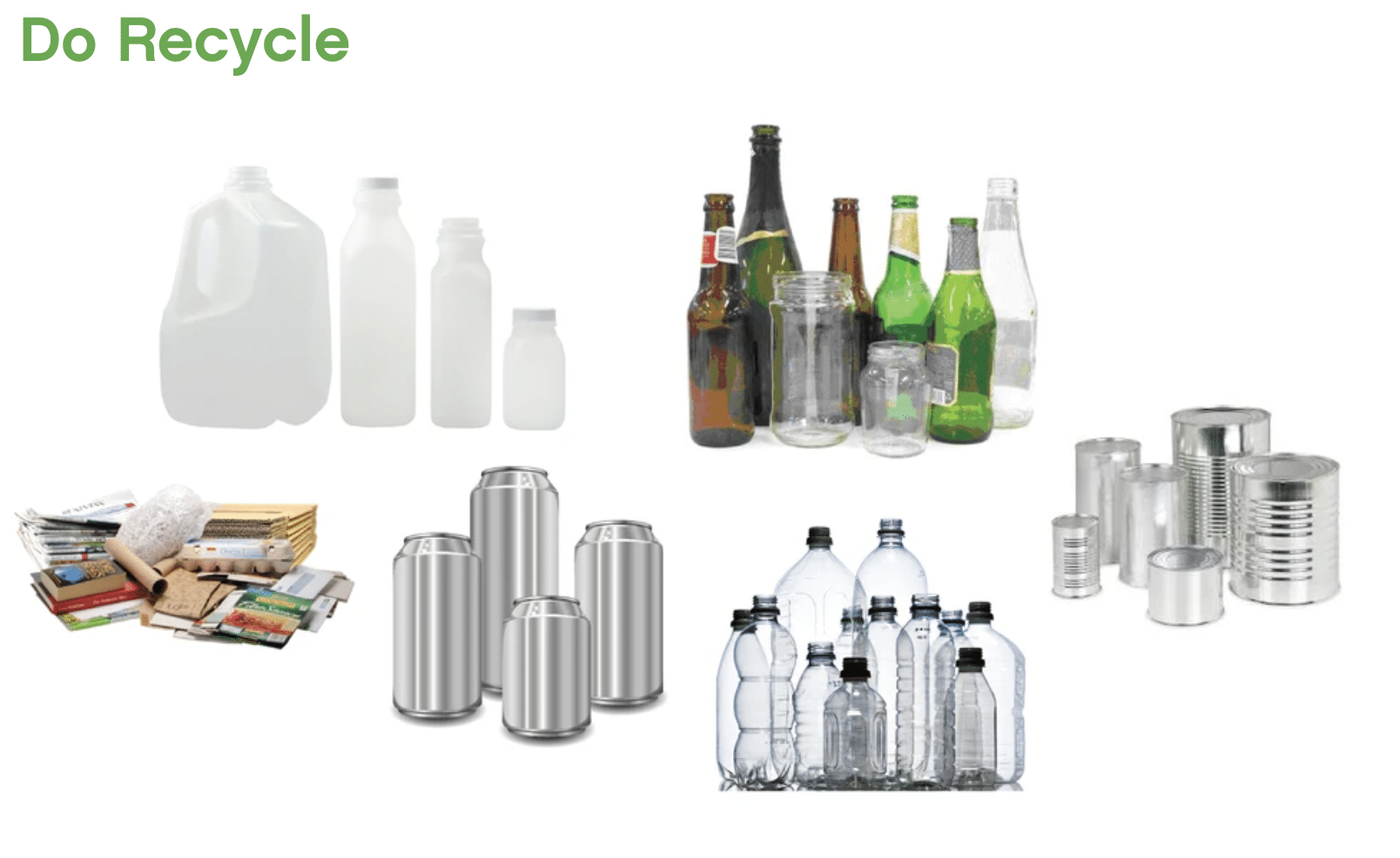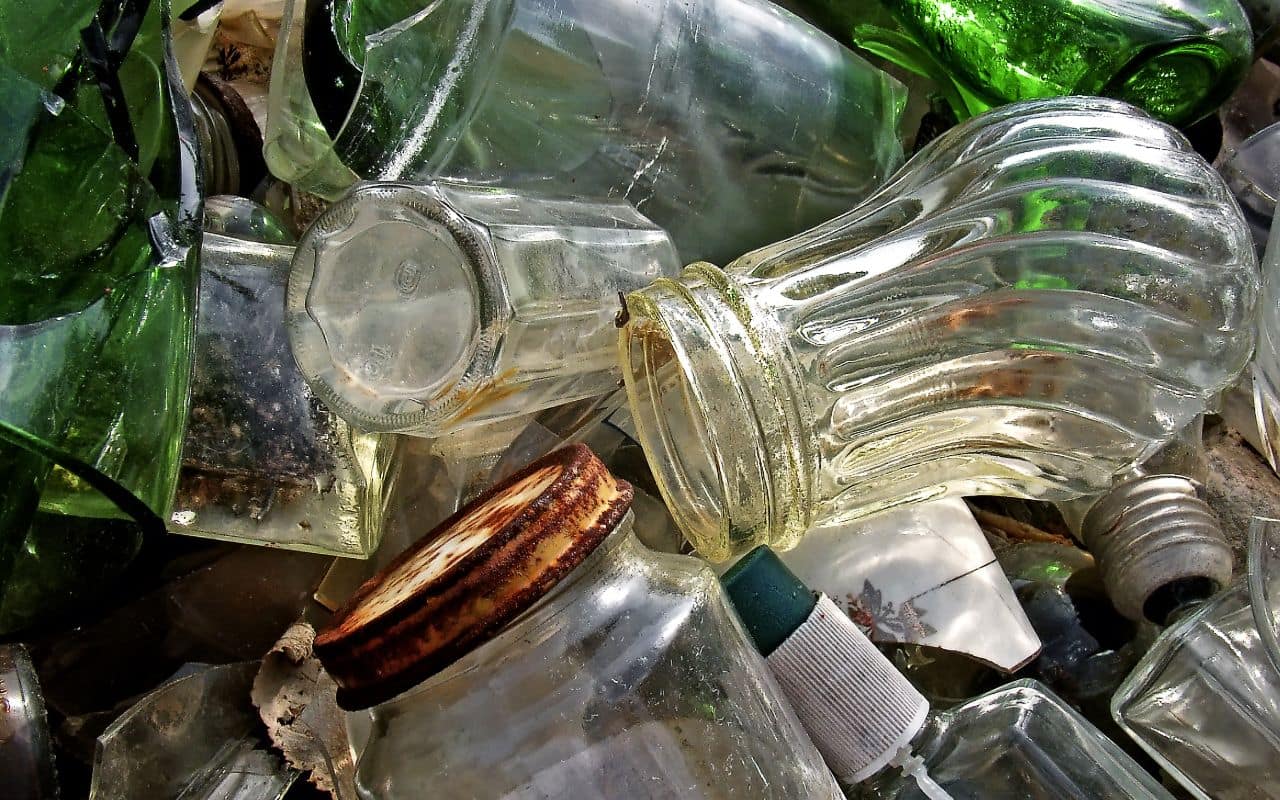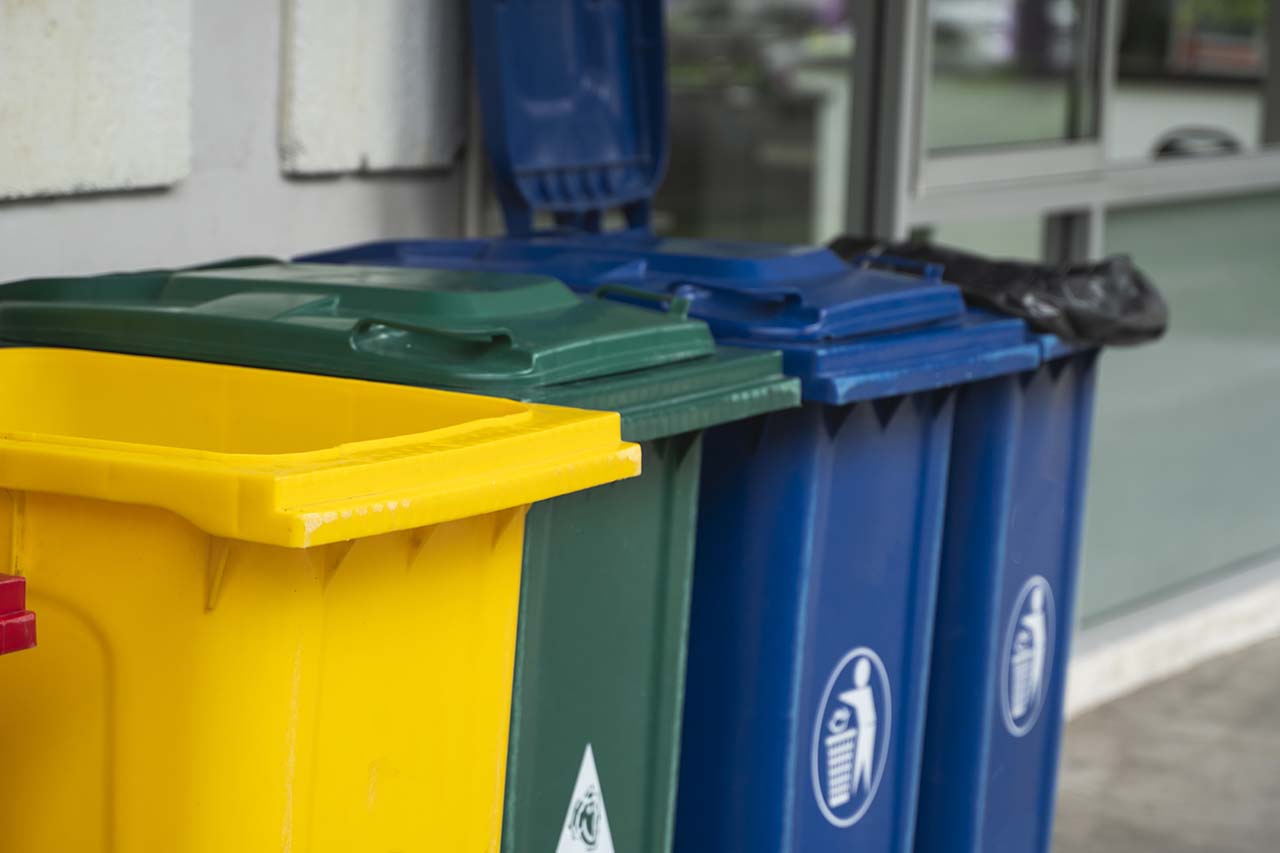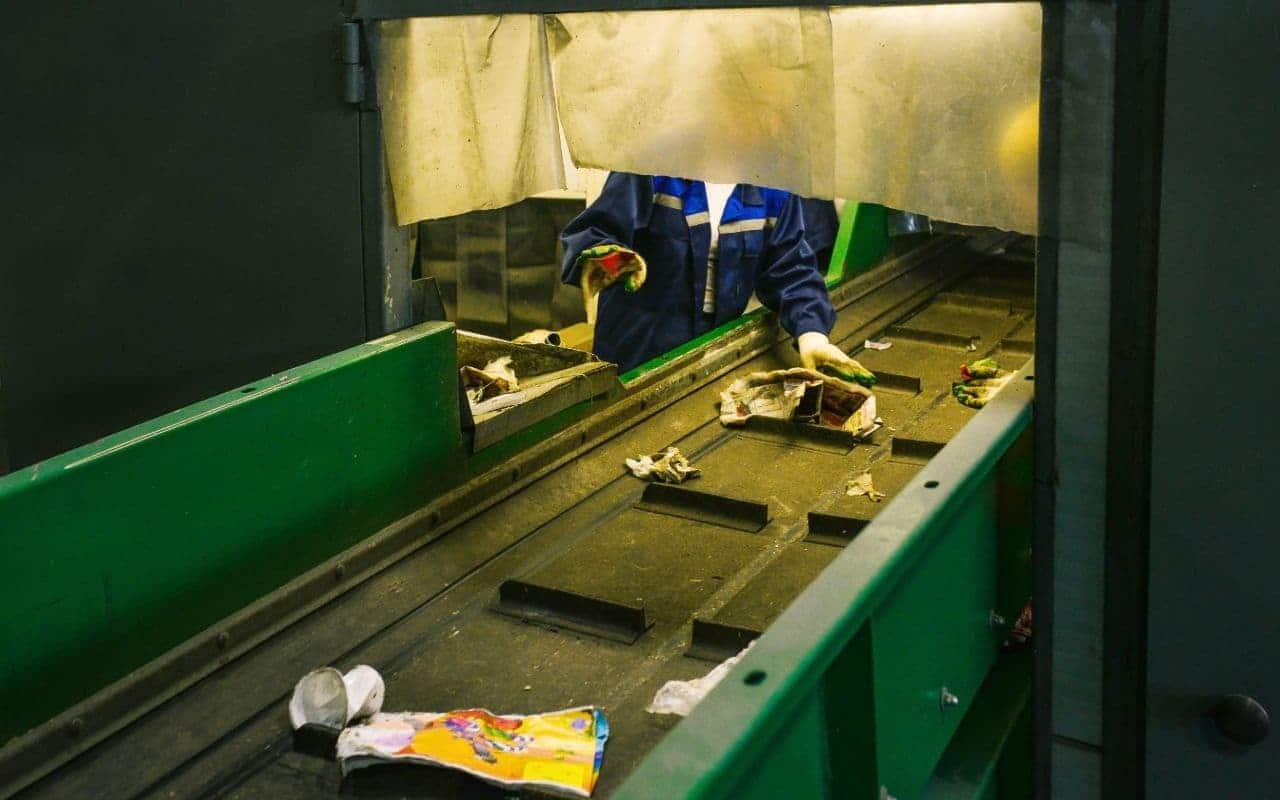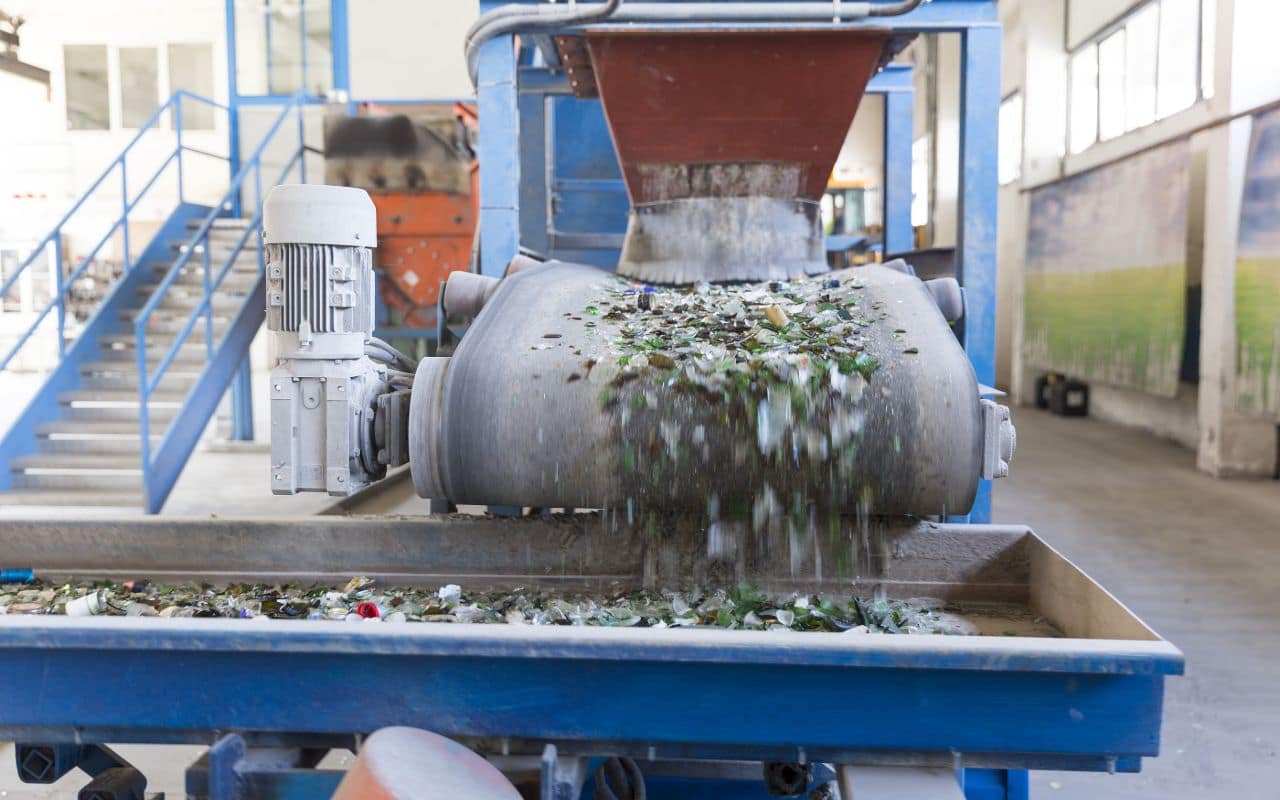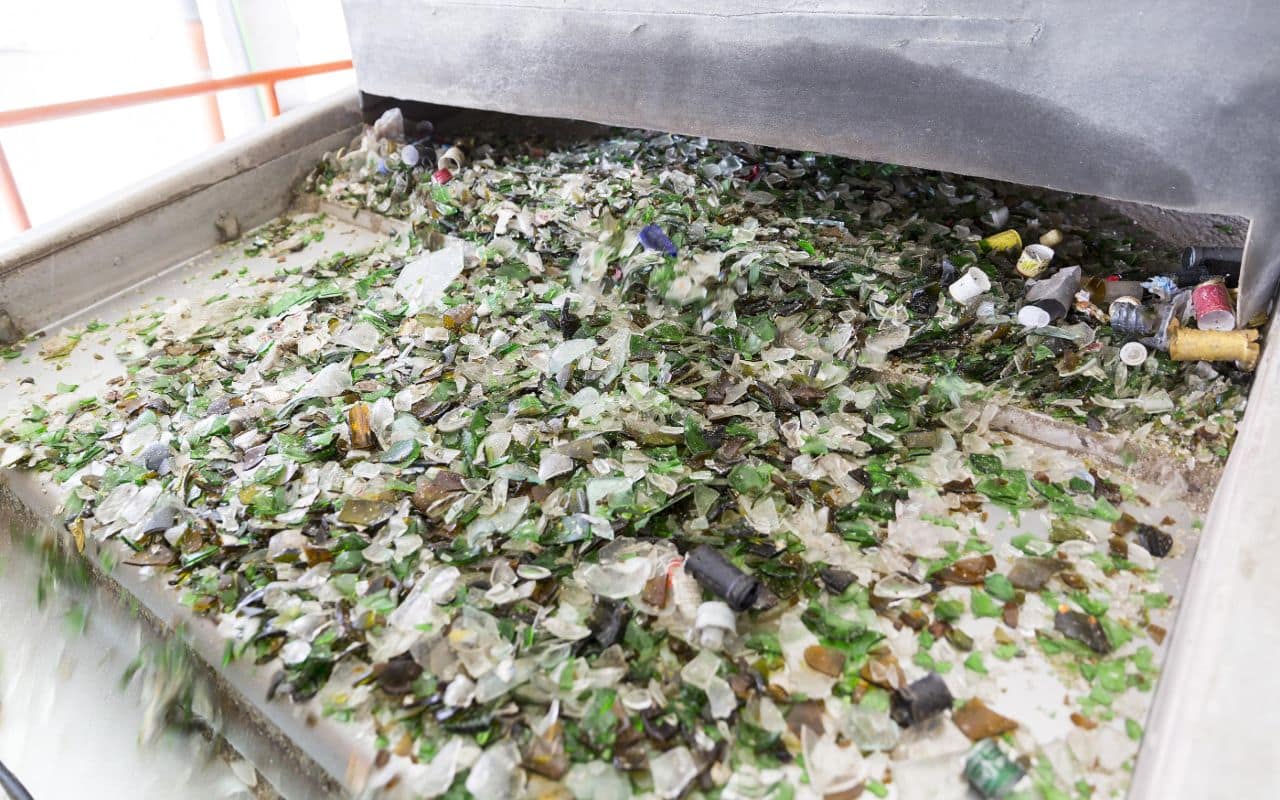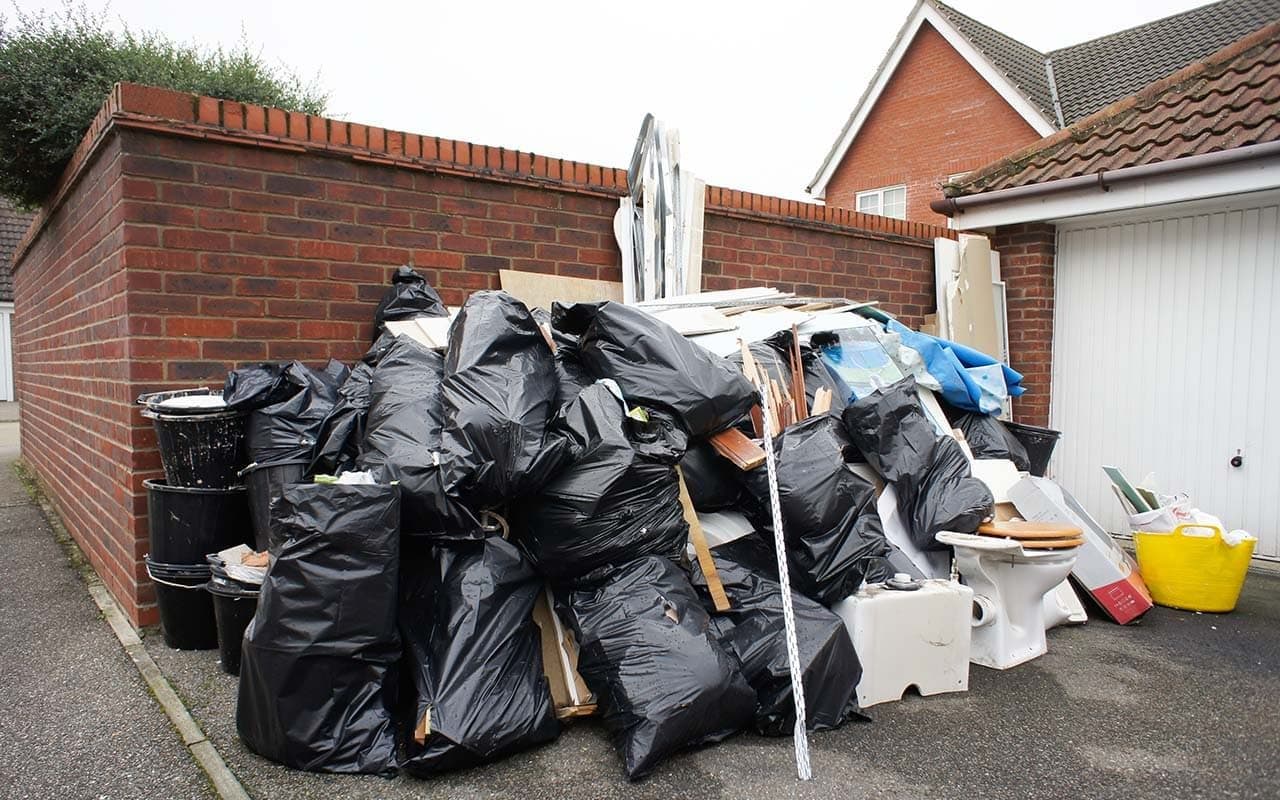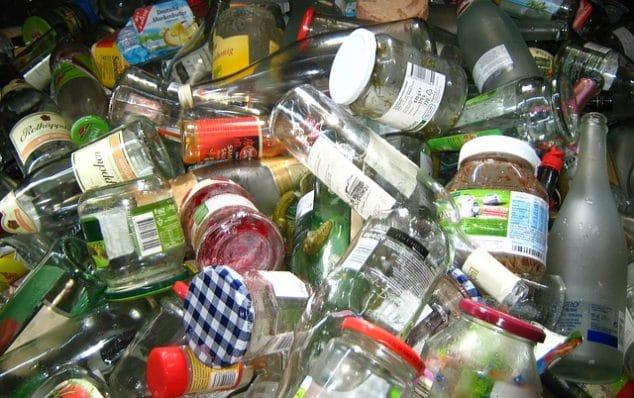
What To Do With Glass
There are so many types of glass and so many different rules locally and federally about what to do with it.
Here is how to recycle glass jars, what to do with windows, construction glass recycling, any other type of glass, and alternatives to recycling or disposing of glass.
What Are the Benefits from Recycling Glass?
Common questions surrounding glass recycling are typically regarding how beneficial it actually is. Questions like:
- Does recycling glass save energy?
- How much energy is saved by recycling glass?
Does Recycling Glass Save Energy?
Yes, recycling glass saves energy by reducing energy usage and impact on the environment.
How Much Energy Is Saved By Recycling Glass?
The energy saved from recycling one glass bottle will operate a 100-watt light bulb for four hours. It takes approximately 1 million years for a glass bottle to break down at the landfill.
Effects of Glass Recycling
There are so many more reasons and benefits to recycling glass. The effects of glass recycling are cheaper manufacturing materials and therefore products, reduced energy waste, reduced natural resource usage, but more effort on the end of the consumer who has to sort and clean the glass to be recycled.
See below for more information on pollution and glass, energy and glass, and material reduction and glass.
Recycling Guide
Recycling Rules
What Happens To Recycled Glass
Glass is infinitely reusable which means that fewer natural resources are needed to produce new glass products.
Products made from recycled glass:
- Glass containers
- Fiberglass
- Recycled glass countertops
- Foam aggregate
- Ground cover
How Does Making Glass from Raw Material Compare to Recycling
Recycling glass is one of the many ways we reduce pollution and waste. Glass is a significant portion of the garbage that we throw away everyday. Instead of letting landfills pile up with glass objects that are a threat to safety and the environment, we can use it again.
- Less energy required. Making glass from raw materials for the first time requires more energy. Making glass from glass cullet – recycled glass that is broken into pieces – melts at a lower temperature. So we can save on energy needed to melt the glass.
- Reduced pollution. Glass produced from recycled glass reduces related air pollution by 20% and related water pollution by 50%.
- Reduce landfills. Recycling glass reduces the space in landfills that would otherwise be taken up by used bottles and jars.
Junk Removal Service
What We Take
How Does Not Recycling Glass Affect the Environment
Not recycling glass bottles, jars, and other containers puts more garbage in landfills. It also means that less glass is recycled which leads to using more natural resources to produce new glass. Using more natural resources to manufacture new glass bottles and containers creates more pollution than necessary.
How Does Recycling Affect the Carbon Footprint of Glass
If we could get 50% of all glass produced to be from recycled glass then we’d reduce the global warming potential by 10%. That’s 2.2 million metric tons of CO2 reduced from the environment every year. – source
How Does Recycling Glass Affect the Environment
There is air and water pollution associated with manufacturing glass. Glass products made from recycled glass reduces water pollution by 50%, and air pollution by 20% when compared to if the product had been made from non recycled materials.
How Does Recycling Glass Take Less Energy
Recycling glass takes less energy because glass cullet is easy to melt down and turn into new glass. It’s easier to produce new glass with fewer resources.
How Effective is Glass Recycling?
Over a ton of natural resources are saved for every ton of glass recycled. Energy costs drop about 2-3% for every 10% cullet used in the manufacturing process. – source.
How Long Will Recycling a Glass Bottle Power A 100 Watt Light Bulb
The energy saved from recycling one glass bottle will operate a 100-watt light bulb for four hours. It takes approximately 1 million years for a glass bottle to break down at the landfill. – source
Can All Glass Be Recycled?
Can glass be recycled? Yes. Can all glass be recycled? No, not all glass can be recycled. The general rule is that if the glass is sold WITH the food as packaging then it can be recycled. The exception is a mason jar, those are sold without food, but mason jars are recyclable. Pyrex is not sold with food, and is not recyclable.
Do You Need To Wash Recyclable Glass Jars?
Some local glass recycling companies/plants do allow some food residue on the glass. When searching, “where can I recycle glass near me?” make sure to check that the places to recycle glass near you accept some food residue on the glass. Although, instead of calling to ask if the glass recyclers near you recycle dirty glass, you could just wash it for the waste glass recycling plant.
The EPA suggests washing all glass before recycling it.
Can You Recycle Glass Bottles?
Yes, you can recycle glass bottles. Recycling glass jars are totally recyclable. As with recycled glass jars, please wash them before recycling. Mason jars are recyclable along with other food containing.
An exception is separately sold mason jars. Those are recyclable.
What Glass Can Be Recycled?
If the glass is sold with the food as packaging, then it is likely recyclable.
- Glass jars – even if food was not sold with it. Mason jars for example. Pyrex style glassware is not considered a glass jar.
- Salsa jars
- Milk jug glass
What Glass CanNot Be Recycled?
Not all glass can be recycled. If the glass is not sold with the food as packaging, then it is likely non-recyclable.
Types of glass that can’t be recycled:
- Window panes
- Mirrors
- Automotive glass
- Crystal
- Ceramics – cookware and decorative pieces
- Pyrex and tupperware glass – glass that is heat resistant
- Lightbulbs – unless specifically accepted by your recycler
How To Recycle Glass
Is Broken Glass Recyclable?
Glass bottles and jars of all colors and sizes can be recycled as long as they are not broken. If they are broken, however, they need to be treated as junk. Mirrors, window glass, ceramic dishes and bulbs cannot be recycled – put them in the garbage bin.
Clean
Remove lids, rinse out and ideally clean with soap, remove labels the best that you can, put in recycling. Separate the glass if specified on the container or by the glass recycling facility.
Other Ways To Recycle Glass
Recycling doesn’t have to be sending used glass products to a facility. Recycling can also be repurposing glass. Repurposing is using something for a purpose that it was not originally intended for.
How to recycle glass bottles:
- Water bottle. Carry a glass bottle as a reusable water bottle.
- Candle holder. Use a glass bottle as a candle holder inside or on the patio.
- Art. Create mosaic art with broken pieces of colored glass bottles.
How to recycle glass jars:
- Storage. Use them as storage containers for leftovers or packed lunches.
- Garden. Build a garden in a glass jar.
- Drink container. Use them as water, juice and beer glasses at home.
- Vase. Use jars as flower vases.
How To Dispose Of Glass Bottles?
Do I Keep the Lid on Glass Containers when Recycling?
No. Do not keep the lid on glass containers when recycling.
Do You Need to Wrap Glass Bottles When Recycling?
No. You do not need to wrap glass bottles when recycling.
How Clean Should Glass Be for Recycling
Glass should be as clean as you can get it. Recycling facilities have to clean all glass, including removing labels before they recycle it. Some facilities just throw those away, so it was a waste to attempt to recycle it.
Glass Recycling Plant Process
The glass recycling process is simple and also complex. Here is the process of recycling glass:
- Step 1: Glass bins. Deposit your glass at a designated area in your city, or your curbside glass bin.
- Step 2: Glass is collected and taken to the recycling facility.
- Step 3: Sorting station 1. Many facilities have two stations dedicated to sorting out contaminants – non glass materials, non-recyclable glass.
- Step 4: Sorting station 2. Separate glass by type and color.
- Step 5: Crude glass breaking is done by a machine. Some water may be used.
- Step 6: Trommel. The broken glass particles go through a spinning screen and are sorted into specified sizes – likely ¾” & ⅜. Fans push paper out and into recycling bins. Other materials that were sifted are sorted and recycled – caps, cork, lids, etc.
- Step 7: Fluidized Bed Dryer. The glass is dried at 190 degrees F. This burns sugars, bacteria, and label glue. Residue is sucked away.
- Step 8: Cullet. The primary rotary screen filters glass into different sizes. Different customers buy different sizes.
- Step 9: Pulverizer. Glass that’s too big for the primary screen is pulverized with a pulverizer machine. Then it passes through the process again until it can be sorted by the primary rotary screen.
- Step 10: After going through the primary screen, glass is sent to a secondary screen. Typically, manufacturers need glass that is 12 mesh or smaller. There are several ranges of sizes and each range is used by a different market.
What Is Made Out of Recycled Glass?
A list of items made out of used glass cullet from the recycling plant:
- Glass container
- Fiberglass manufacturing
- Abrasives
- Binder/flux – brick and ceramic
- Filler – paint and plastic
- Hydroponic rooting
- Adsorbent and cation exchange
- Filtration medium
- Frictionator – matches and ammunition
- Additive/flux – metal foundry
How Much Are Glass Bottles Worth?
If the glass is recyclable, and if the glass also has a recycling value, then each glass bottle is likely worth $.10. That is how much glass bottles are when recycled.
How Much Does It Cost To Build A Glass Recycling Facility?
how to set up a glass recycling plant
How To Start A Glass Recycling Company?
If you’re wondering how to start a glass bottle recycling business, you’ll be surprised how simple it is. Here’s how to start a glass bottle recycling company.
This is easiest if you have a garage or backyard, and a truck or trailer.
You’ll have to
- Collect the glass
- Clean the glass
- Separate the glass into colors
- Take it to the recycling plant.
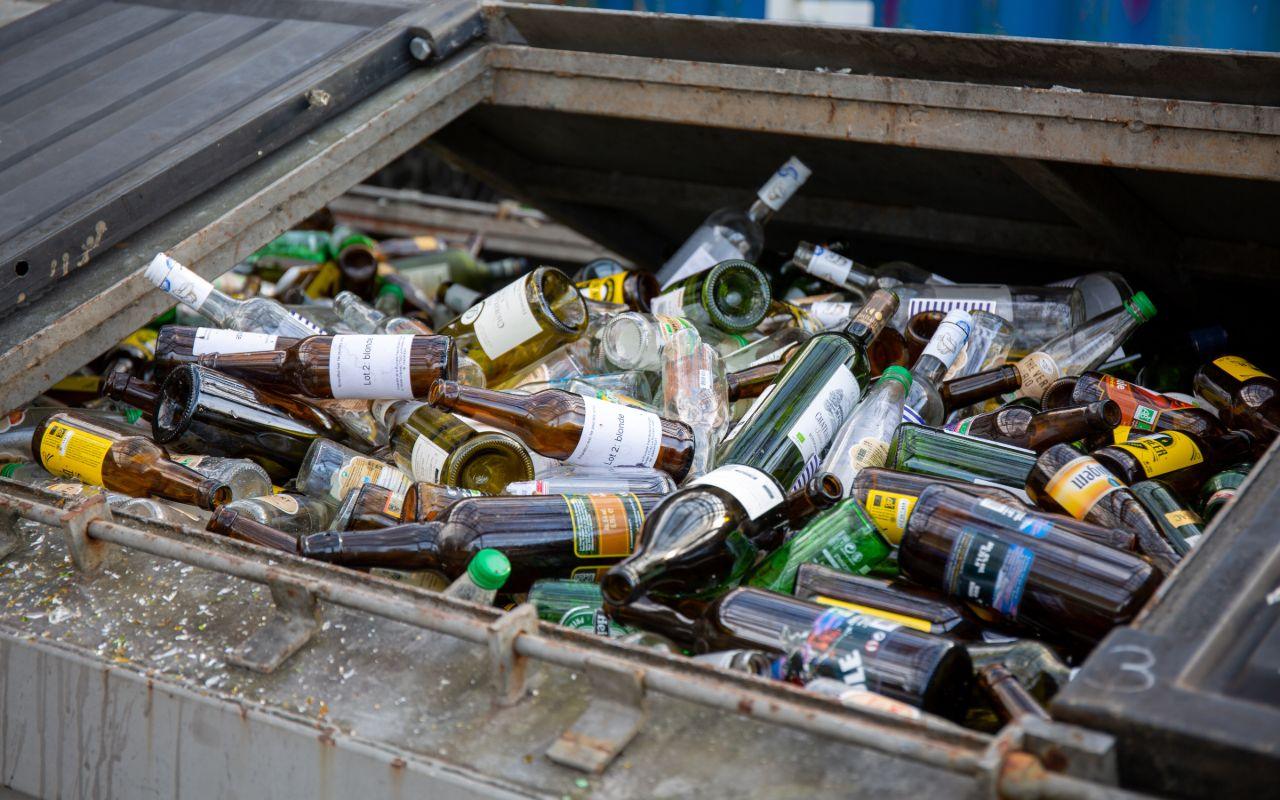
Seattle Glass Recycling
Glass recycling in Seattle is second to none. Recycled glass and glass bottles can be recycled at Seattle transfer stations, curbside recycling collection, and at private locations nearby.
Private Glass Bottle Recycling Locations:
- 13800 SE 32nd St
- 3021 NE 4th St.
- 206-477-4466
- 11724 NE 60th St
- 206-477-4466
- 16925 Cedar Falls Rd SE
- 206-477-4466
- 18800 Orillia Rd S
- 206-477-4466
- 2733 3rd Ave. S
- 206-332-7700
- 2300 N 165th St.
- 206-477-4466
- 1650 Battersby Ave E
- 18900 Westside Hwy SW
- 206-477-4466
- SE Snoqualmie Pass Summit Road (State Route 906)
- 74324 NE Old Cascade Hwy
- 206-477-4466
- 1265 S Anacortes St
- 360-757-6096
No Time? No Problem!
If you need cleanup services or need to get rid of a bulky item such as an old stove, contact Action Junk Hauling for an easy solution. No need to waste time researching, or to haul and lift heavy appliances. Just tell us what you need done and when would be a convenient time, and we’ll take care of the rest.
Our services are efficient, affordable and reliable. We’re an environmentally conscious company, and we’ll make sure your recyclables are taken to the right place and the rest is disposed of in a responsible manner. For more info on what we take and what services we offer, check out our website.
Recycling Guide
Glass Recycling
Recycling Guide
Appliance Recycling
Recycling Guide
Plastic Recycling
Recycling Guide
Construction Debris
Can you recycle old carpet? Where do you take old brick and concrete? Is it worth hiring a company to throw out demolished construction materials? Get answers and decide for yourself
Looking for Professional Seattle Junk Removal?
Allow Action Junk Hauling Pros to clean up the mess.
Get started with a free same-day estimate. From there, we’ll schedule a pick-up time at your earliest convenience, collect your junk, and dispose of it responsibly.
We look forward to working with you!

